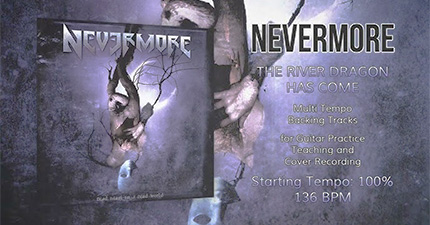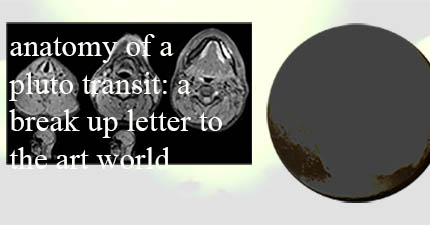This is an interview with Psycrumbly, a biker in New York. They’re someone who is just like you—a person who lives somewhere and uses their bike to get groceries, go to work, and visit friends.
I first heard about NYPD’s new policy of giving bikers criminal charges when Psycrumbly got arrested for simple bike riding a couple weeks ago. Through this interview, I got the chance to learn about what safety looks like on the streets and how lawmakers use gray zones to experiment on people.
If you use the streets for any of the following activities: driving, bike riding, walking, running, playing, standing, or sitting then you may be interested to hear about how cops use bikers to change how we proceed on our streets.
Alice Sparkly Kat: How long have you been biking around New York City and what kinds of problems do bikers usually run into on the streets?
Psycrumbly: I've been biking since 2014 so 11 years.
Biking in New York City helps me understand the logic of the NYC infrastructure- things are set up to be temporary with piecemeal solutions to move things in and out quickly. People and tourists, cars, goods. The bike lanes are set up as the gray area for traffic, parking and loading zones. Cars go in it to emergency park, pedestrians walk in it when the sidewalk is blocked by outdoor dining, trucks unload there, NYPD parks there, and shops and car repair shops store things there. It forces bikers to go in and out of car traffic constantly.
Something that freaks me out are those bike lane dividers that the city set up. They're these plastic sticks that connect to a plastic bump that is then drilled into the road. It's a piecemeal solution to ‘protect’ the bike lane. Often, cars drive into the plastic sticks because they're soft and flexible, and then they break. When you're biking, you don't see them after they break so you ride onto those bumps and then you trip. These dividers becomes really dangerous when they break.
I don't have a problem with other bikers or even with cars. Yes, cars get road rage when they see bikers, trucks have blind spots and they sometimes don’t see you, but that's only once in a while. The confusing and inconsistent infrastructure is more dangerous.
Alice Sparkly Kat: What’s the scariest thing that has happened while you were biking?
Psycrumbly: I've had a few accidents. I got T-boned by a car once at a stop sign. That was scary but I think the scariest thing was getting arrested for biking and dealing with the cops.
Alice Sparkly Kat: It’s wild to think about how dangerous biking can be because it’s something that kids do. It’s something that everyone should be watching out for.
"Bikers have a natural intuition around what's safe."
Psycrumbly: I feel like bikers, even kids, have a natural intuition around what's safe. We’re not going to go through a red light when there's a car coming at you. You make the right judgment using your intuition about what is safe for you and everyone around you. But sometimes you have to go against your intuition just so that you don't get punished.
Alice Sparkly Kat: Can you describe what happened to you? Was it Lorimer and Broadway?
Psycrumbly: It was Lorimer and Meserole. I was riding my bike on Memorial Day Sunday morning at 9 AM on a really, really, really empty street because it was so early.
I was on my way to work. I was stopped by the police on Lorimer and Meserole. The NYPD car cut me off, forcing me into a sudden stop and said I had run a red. I do not recall this. I just remember the street being empty. At that moment, I though, “You’re falsely accusing me and harassing me on an empty street.” I was angry because in 2019, I had been falsely ticketd for running a red by the same precinct on the same street.
Alice Sparkly Kat: Memorial Day Sunday was the end of the month.
Psycrumbly: Right, I thought it could be NYPD filling their quota again, so I didn't want to stop. The fine for running a red for bikes is $180. All I could think of was “I can’t stop because I can’t pay the $180.” So I instinctively turn around and I bike onto another street. The police car followed me. I was like, “Oh, okay, I need to go on a street where they can't bother me.” So I went on a one-way road. Again, there were no cars. It was an empty street with no pedestrians. The police car followed me onto the one-way street, driving in the wrong direction. They're going fast with sirens on.
Two blocks later, there just happened to be another police car parked on the parallel avenue, on an empty street on a Sunday, probably getting overpaid on a Memorial Day weekend. I rode onto the sidewalk. There were no pedestrians. Two cops got out of their cars and came toward me to try to catch me. That's when I saw that one of them had a taser in his hand. I thought, “I have to dodge that.” So, I made a turn and he tried to grab me. I dodged it but within five seconds I heard my tire pop. I stopped and said “You got me”. That's when four cops came onto me and pushed me against the wall—I’m talking about full force, and twisted my arm behind my back. They put very tight cuffs on me. The person holding a taser kept shouting, “You're crazy! I got you!”
I didn’t want to get in trouble. I'm not gonna fight. He kept shouting, “You're crazy and now you're going to jail.” I said, “I need my bike to come with me. I need my bike. I can't leave the bike.” The officer kept saying, “You did this to yourself and now you're going to jail.” They put me in one of the police cars. It was a two-minute drive to the precinct. While I was being searched, I saw the verbally violent officer walked in, handing in his gun and his taser to the front desk, the same taser with a yellow handle. He said, “She's crazy. She tried to run.” He was talking about me like I’m not there. I feel like it’s a natural reaction to want to resist when you’re faced with someone who presents as utter authority over you. But I couldn’t because I was being searched while cuffed. The police took things off me piece by poece, my necklace, my rings, my shoes. They looked through my bag right in front of me. I didn’t want to admit I had fear but I felt powerless, so the anger took over. I was so angry that I teared up a little.
The cop who initially stopped me played the good cop and told me, “We don't want you here for too long. We’re gonna write a couple tickets and you’ll be out on your way. You're not gonna go in the cells.” Two minutes later, they put me into the cell. I was in there for about 20 minutes. I left with two pink tickets that were criminal court summons.
Alice Sparkly Kat: What reason did they give you for arresting you?
Psycrumbly: One ticket was for reckless driving (bicycling). The other one was for disorderly conduct.
"Bike lanes are a gray area. Bikers are a gray area. Immigrants are also in a gray area. Law enforcement gets to experiment in these areas."
Alice Sparkly Kat: I know that you were wrongfully given a ticket for running red at Lorimer and Broadway in 2019. What was that experience like? Did that experience inform what you went through recently?
Psycrumbly: Yes. They gave me a red light ticket in 2019. Luckily, a deli had a security camera pointed directly at the traffic light and the street. I was able to get the footage showing me passing through on a green light, then the light turned red, and the police car that was tailing me ran the red. They were the only one running red but claimed I had run it. When they stopped me in 2019, they also gave me 3 tickets for allegedly running stop signs and passing school bus, before the red light intersection. Even the judge seemed confused. At the traffic court hearing, the judge left the courtroom to look up the law and came back and dismissed the stop sign and school bus tickets, saying they didn’t apply to cyclists.
This time was the same precinct, even the same street. I honestly thought they’d write me muptiple tickets again. When they stopped me, I thought, “This precinct hates bikers. They abuse their power left and right to fill quotas and force people to pay unjust fines. I’m not sure how many tickets they’ll give me this time.” One of the strangest things for NYC’s traffic laws for cyclists is how the fines escalate: the first red-light ticket is around $180, but if you get a second one within 24 months, it jumps to nearly $500. If you get two red-light tickets on the same day, that total is over $600, and if you get three, you could be looking at more than $1,000 in fines.
Alice Sparkly Kat: I remember that, last time, you had to fight it for years.
Psycrumbly: Yeah, they had so much backlog, so my court date got pushed back 3 years.
Alice Sparkly Kat: Recently, NYPD has adopted a new policy of writing bikers criminal charges for running stop signs or biking in the wrong direction instead of traffic violations. What do you think about this new policy? Why do you think bikers get criminal charges while drivers of cars and trucks get traffic violations for doing the same things?
Psycrumbly: Bike lanes are a gray area. Bikers are a gray area. Immigrants are also in a gray area. Law enforcement gets to experiment in these areas.
Under traffic law, bikers are treated like drivers: we’re subject to the same vehicle and traffic laws, even though we’re not given the same protections or space. What’s funny is that drivers often say bikers are blocking the traffic. Bikers are penalized like cars, but perceived as obstacles. This legal gray area gives law enforcement room to experiment their enforcement tactics, with policing and punishment. And right now, they’re targeting e-bike riders. These are mostly immigrant workers who are disproportionately exploited by the apps, constantly working. They exist in a double gray zone—not just in traffic law, but socially. They’re not fully seen as part of the traffic system, and they’re not seen as fully protected people.
I asked a lawyer why the city is doing this. He told me: “Because e-bikers are too afraid to engage in traffic court or pay fines.” Many of these workers don’t own cars, so they don’t need driver’s licenses. In the U.S., your driver’s license is your ID—it’s how the system tracks and penalizes you. The city wants to impose the same punitive measures onto e-bikers as if they own cars, but they couldn’t get the fines from the people who are left out by the system. So they shift the blame onto immigrant workers who are the least protected. These legal gray areas become testing grounds for punitive enforcement or a way to send a message about their policing priorities, or to flex their muscle.
My partner reminded me that cars are seen as a sign of productivity. They’re moving logistics, getting people to work, transporting goods. The roads are designed around the car, bike lanes are designed around cars. So when delivery work relies on bikes, it becomes both dangerous and devalued. It’s treated as disposable. Delivery workers on e-bikes are moving food, feeding people, and saving them 20 minutes of walking time. At the same time the apps make billions by underpaying them, forcing them to take more orders, ride faster and having to be in car traffic more.
Alice Sparkly Kat: I feel like kids are also in a legal gray area. Kids can ride bikes because doing so doesn’t require a driver’s license and they use bikes to see their friends or go to the park.
Psycrumbly: It’s true. Biking is freeing because you’re moving yourself from place to place with just your body and two wheels. My partner and I were talking about how drivers get angry at bikers because non-bikers see biking as a rich people’s sport, a leisure activity. That realization surprised me. In New York I’ve only ever thought of biking as the cheapest and fastest way to get around. I also grew up in a city in China where biking was a majority mode of transportation before private cars became accessible. And yes kids like biking too, it can give you a sense of autonomy. But I rarely see kids bike on the streets.
Alice Sparkly Kat: In Philly, I see kids riding bikes in the street all the time. In a lot of places, kids ride bikes. I guess kids don’t get to ride bikes in New York City.
Psycrumbly: Yeah. I went to boarding school in middle school and I always envied the other kids who got to ride their bike home together after school. I thought it was romantic. Maybe that’s why I’m still biking today. Biking is the first moment of being able to go places by yourself with your own legs when you are a kid. It’s a feeling of freedom.
Alice Sparkly Kat: What was being at court like?
Psycrumbly: I waited in line with a crowd for about an hour. After checking into the courtroom, court police called me and a few other people in to briefly meet with a free public attorney. We each had about 30 seconds to a minute to discuss our cases. Then we returned to the courtroom and waited to be called up. When it was my turn, the attorney pointed out that the handwriting on my ticket was illegible. The judge struggled to read the tickets for a bit, then agreed and thrown out both tickets. From the moment I stood before the judge to when I left the courtroom, it was all over in less than two minutes.
Alice Sparkly Kat: So the tickets were thrown out because they were just scribbles?
Psycrumbly: It was the petty crimes court so the other charges that people were in for ranged from barbequing on the sidewalk to operating street vending without a license. Several people had e-bike related tickets. They all got Adjournment in Contemplation Dismissal. It was a waste of everyone’s time. I only saw a couple white people out of around fifty people in the courtroom. 30% of the people in court needed interpretation. The courtroom had three public attorneys rotating in and out. They would sometimes make quiet jokes or faces with each other about how ridiculous the charges were.
Ultimately, the reason why they ticketed me was because I did not comply because of my own intuition. I don't feel safe being stopped by the police.
Alice Sparkly Kat: It is natural to not want to comply when you're scared or when you don't want to get fined. Like, your body has a natural response to the situation at hand.
Psycrumbly: Yeah, it's your intuition saying, “I want to protect myself, I don't want to do what doesn't feel safe.” The bike lawyer told me with these recent criminal summons against E-bikers, a lot of the times the e-bikers are too scared to come to court. I was even scared. I’m a green card holder and I have an immigration lawyer friend who I can ask advice from. But that’s not everyone. If people are too scared to show up to traffic court and pay their fines, what makes you think that they’d show up to criminal court? But not showing up to criminal summons is another crime. It gets scarier and scarier like a set of dominoes falling.
Alice Sparkly Kat: You’re too scared to stop when you get stopped so you get arrested. Then, you're too scared to show up and you get another charge. Would you say that NYPD’s new policy of giving bikers criminal charges makes the streets safer? How do you feel riding around the streets now?
Psycrumbly: Absolutely not. Now, whenever I ride my bike, I have one more thing to worry about- the cops. I have to constantly look behind my back to see if there are police cars who try to intimidate bikers and make us feel unsafe. The other day, I made a wrong judgment to stop and someone crashed into me. I feel like I’m losing my judgement. When you're on the street, you have to focus on what keeps you safe. When I have doubts in my head about who's watching me, I make the wrong judgment.
Alice Sparkly Kat: It affects pedestrians, cyclists, kids, animals…pretty much anyone on the streets suffer when bikers feel unsafe and second guess themselves.
Psycrumbly: They want us to move out of their way as fast as possible but they also want us to stop in front of the traffic? Which one is it? I mean The NYPD causes WAY more accidents than bikers. They ran the most reds. They make the streets unsafe.


